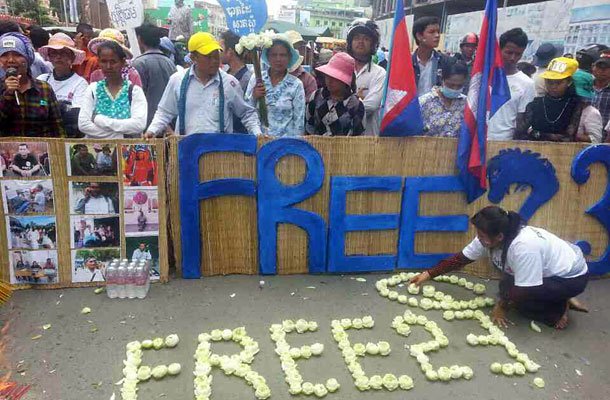The Municipal Court in the Phnom Penh convicted 25 factory workers and activists of instigating violence during protests that challenged the government in January. Shortly after, however, the defendants, who had been detained since their arrests earlier this year were released.
In January, workers and activists gathered to demand higher minimum wages from $80 a month to at least $160 for those working in garment factories which led to a harsh crack down by Cambodian officials. At least four died from the protest when military police opened fire with assault rifles to stop the strike. Human rights groups were quick to criticize the actions of authorities, who violently subdued the protest and arrested over two dozen.
On Friday, many were relieved to hear of the release of the protestors, but there is still criticism over their convictions, which entail suspended sentences from one to four years, and for four men, fines of $2,000. Human-rights groups believe the ruling decision was politically motivated to appease opposition from sectors of the government and from the Western clothing companies such as Gap, Hennes & Mauritz, and Levi Strauss & Co that are based in Cambodia.
According to IndustriALL Global Union, Switzerland based labor group, representatives from many of these brands have visited Cambodia to assert that their involvement with Cambodia depends on the stability of the government and judicial system, transparency, and the rule of law.
Levi has already cut sourcing, stating: “We reduced our sourcing in Cambodia to reduce supply chaining risk and ensure delivery. We hope to see swift progress on the outstanding labor and human rights concerns so our sourcing can return to previous levels.”
Many are taking a stand in supporting the plight of the factory workers, yet the Cambodian government will not budge much. They would not raise wages over $100 per month, and on May Day protests, Cambodian officials reacted violently again.


















































Comment Template